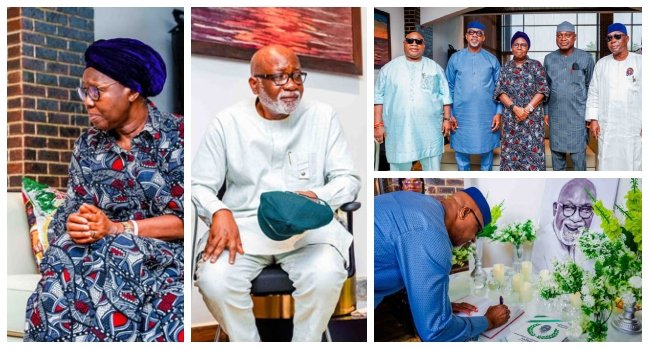Former President Olusegun Obasanjo, Prof. Jeffrey Sachs and the African Export Import Bank (AFREXIMBANK) have committed to launch the Education Fund for Africa to ensure free education for children on the continent.
They made the pledge at the second Babacar Ndiaye Lecture in Bali, Indonesia.
The lecture was organised by AFREXIMBANK as a side event at the ongoing International Monetary Fund (IMF) and World Bank Group (WBG) Annual Meetings which began on Monday.
Obasanjo and Sachs delivered lectures on “Global Power Disequilibrium, Trade Wars and Implications for Africa”, in honour of Ndiaye, former President, African Development Bank, who died on July 31, 2017.
Obasanjo said that investing in education by Africans for Africans was important for the continent’s development.
He added that Africa has to develop itself as no one else would do it for her.
According to him, the absence of education is the main cause of insurgency in Nigeria.
“When you talk to some of our people they will say it is the fault of governors and leaders in the community, but it is the fault of all of us Nigerians.
“We have to make sure we get it right and where a particular community is not moving right we have to appeal, cajole, enforce and make sure that every child in that community has education up to secondary school level.
“I believe that education is the starting point for development in Africa. There is no earthly reason why any African child should not have education up to secondary school free.
“We are the architects of our own fortune or misfortune and so we cannot blame anyone. Education is very basic to everything- life expectancy, maternal mortality, infant mortality, employment generation and all.”
Obasanjo said that once the issue of education was solved, the people would live better lives and make contributions to their own communities, states and indeed the world.
On the issue of the existing trade war between the U.S. and China, he said Africa should ensure it got up to 50 per cent intra-African trade to serve as a buffer.
Sachs, a development economist, said that Africa should take advantage of the trade wars to make bold breakthroughs, adding that it was the time to make bold initiatives for 2030.
He said that Africa, India and China were similar in population and should take advantage of the present global issues to develop themselves to become future world economic hubs.
“There is a very dramatic technological revolution on the way and that is to the benefit of Africa.
“Information revolution is the basis for Africa to make revolutionary advances in healthcare, education and the private sector economy.
“You need infrastructure and training for the people on the new technology, so you need to build digital capacity and ensure the universities are creating engineers to handle these new technologies.”
On the issue of education for all, Sachs said that if Africa would pledge to fund the vision, he and many others would work to fulfil the pledge.
“You provide the funds and we make it happen,” he said.
Prof. Benedict Oramah, the President, AFREXIMBANK, said that although education was not part of the bank’s mandate, the bank would do everything possible to ensure that the fund emerges.
“You ask about where the money will come from but the money is in Africa and we have to start raising the money from within and when we do, others will follow.
“Africa has to get it right for it to get to where it should be,” he said.
The News Agency of Nigeria (NAN) reports that guests at the lecture included leaders of African and global banks, development finance institutions, the business community and political leaders attending the IMF/WBG meetings. (NAN)





